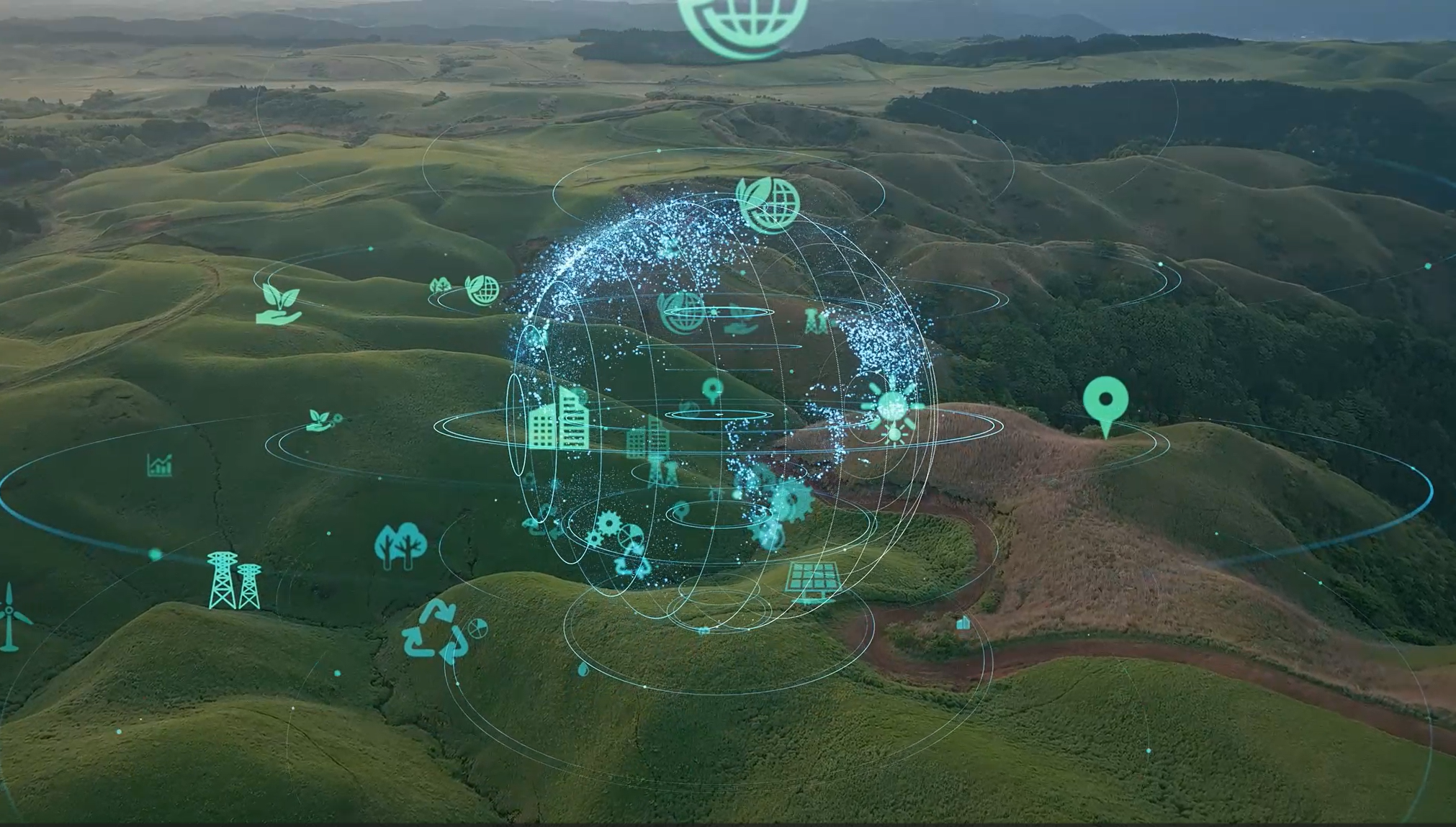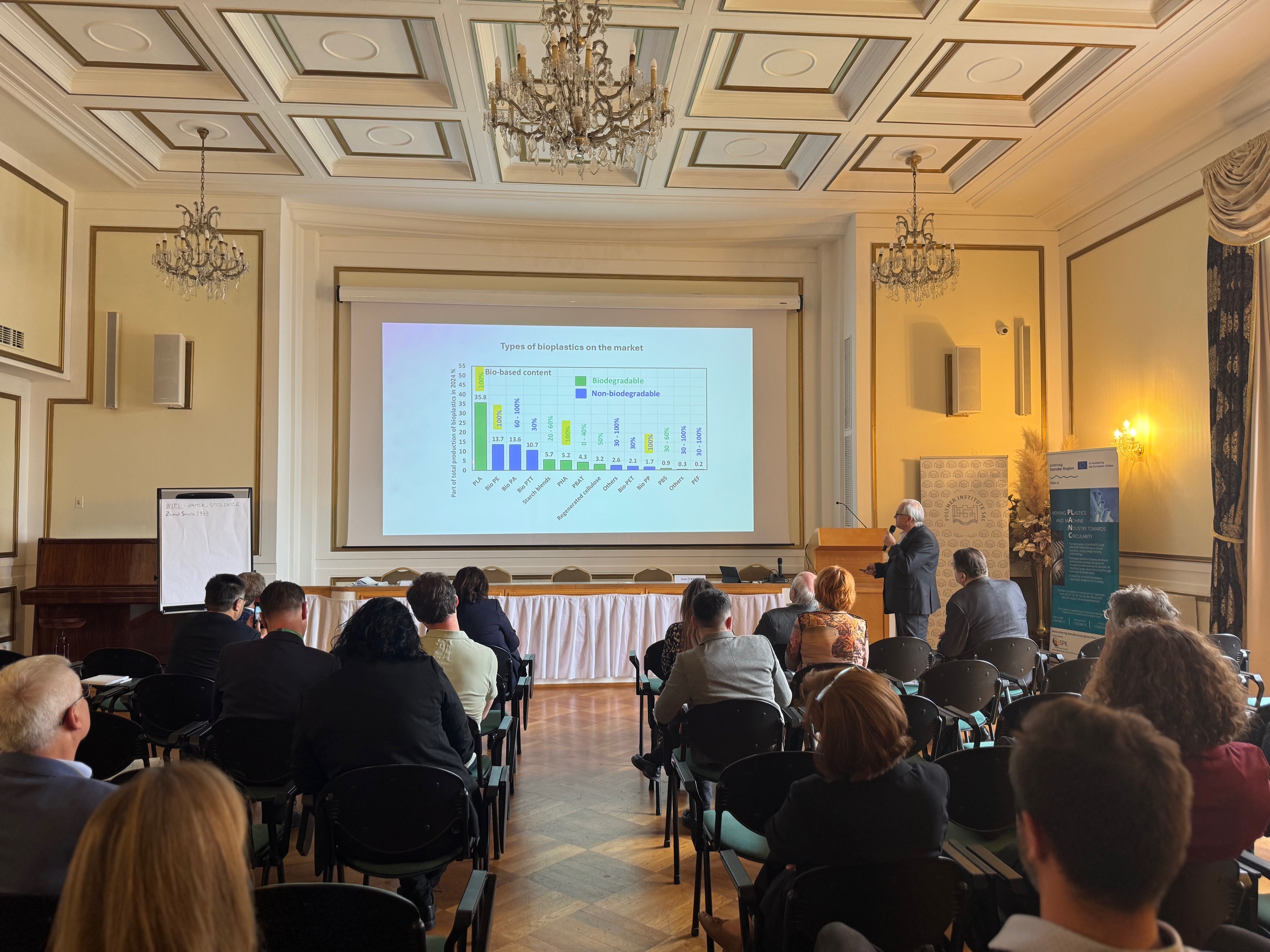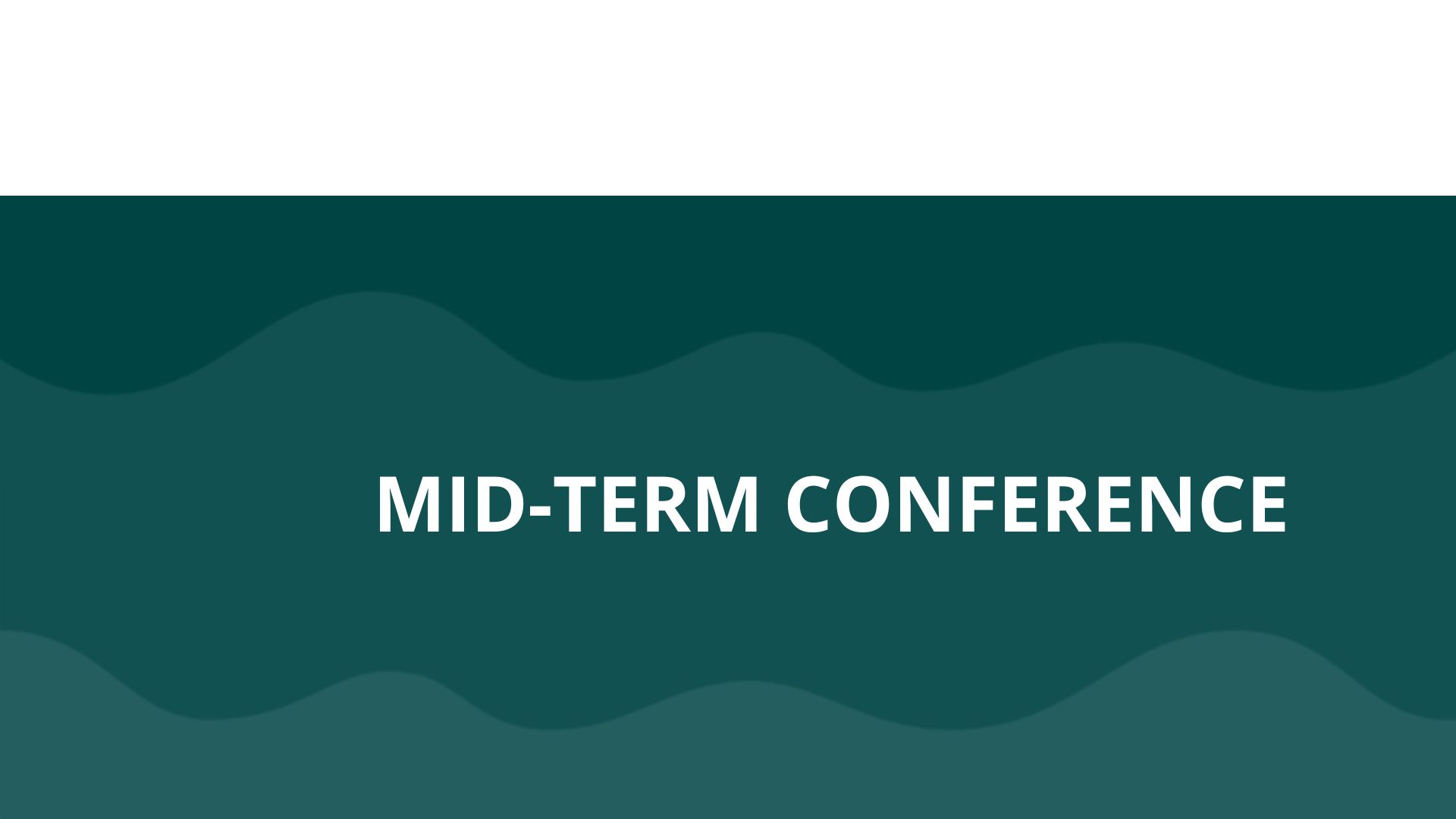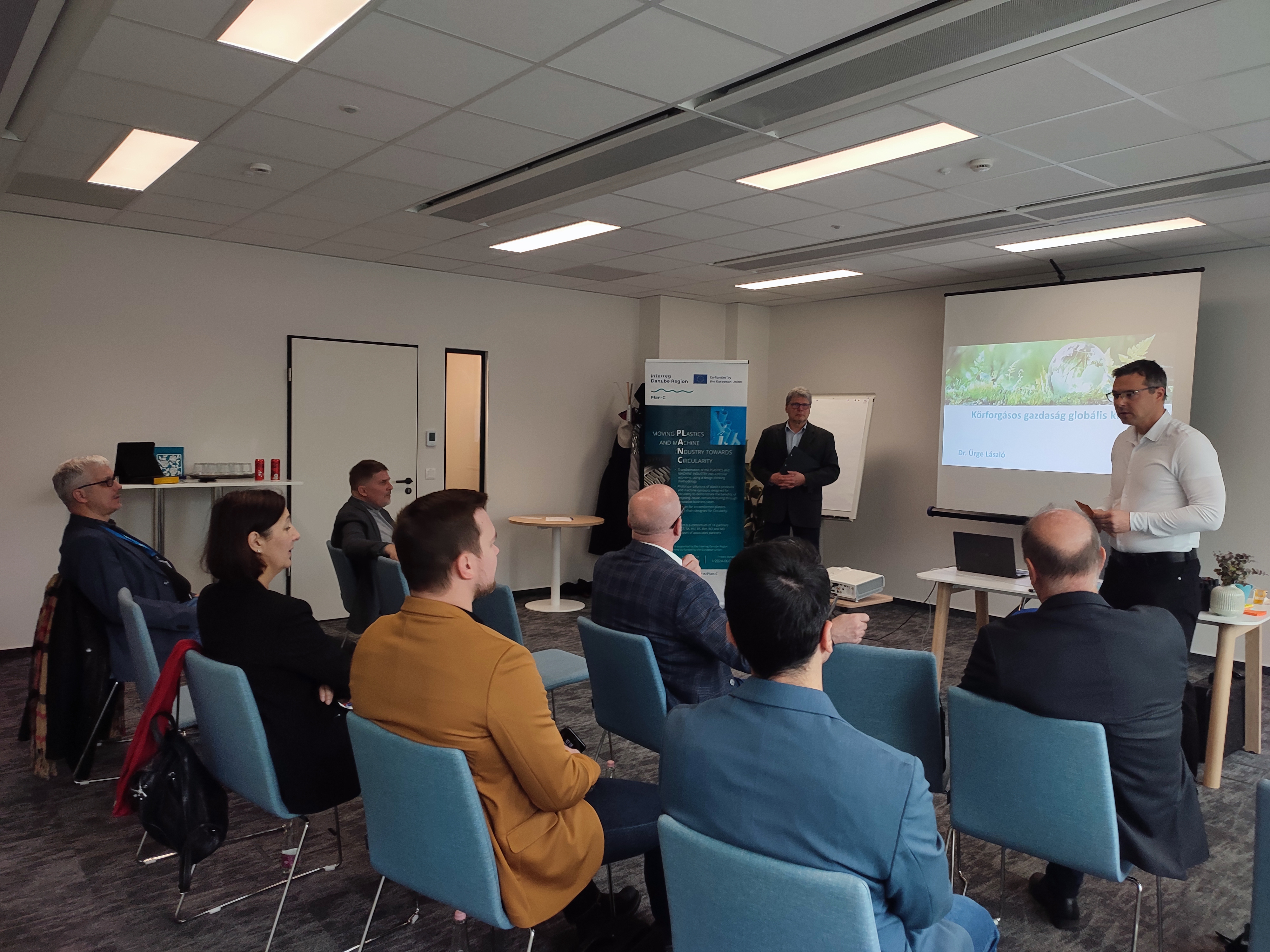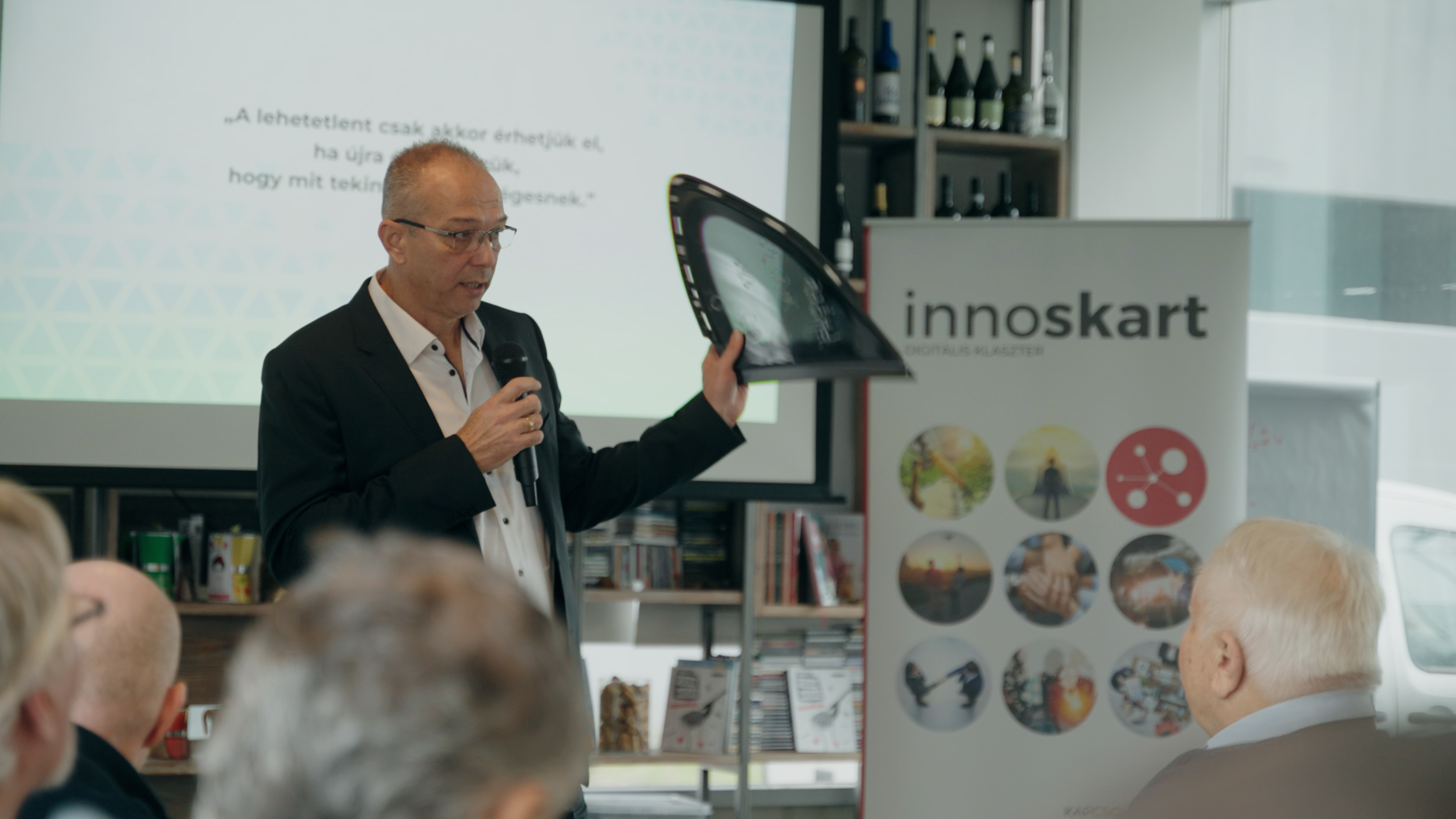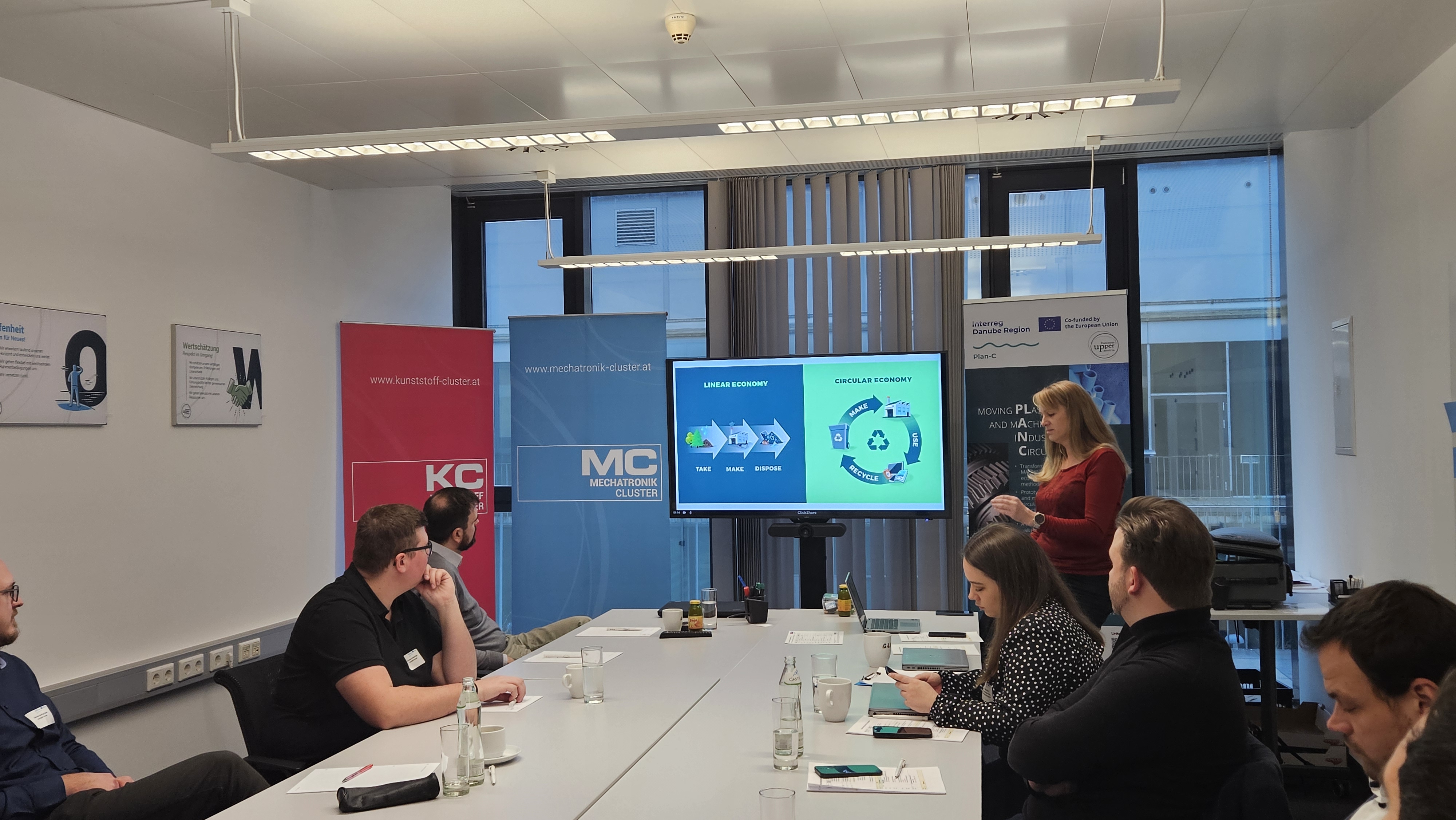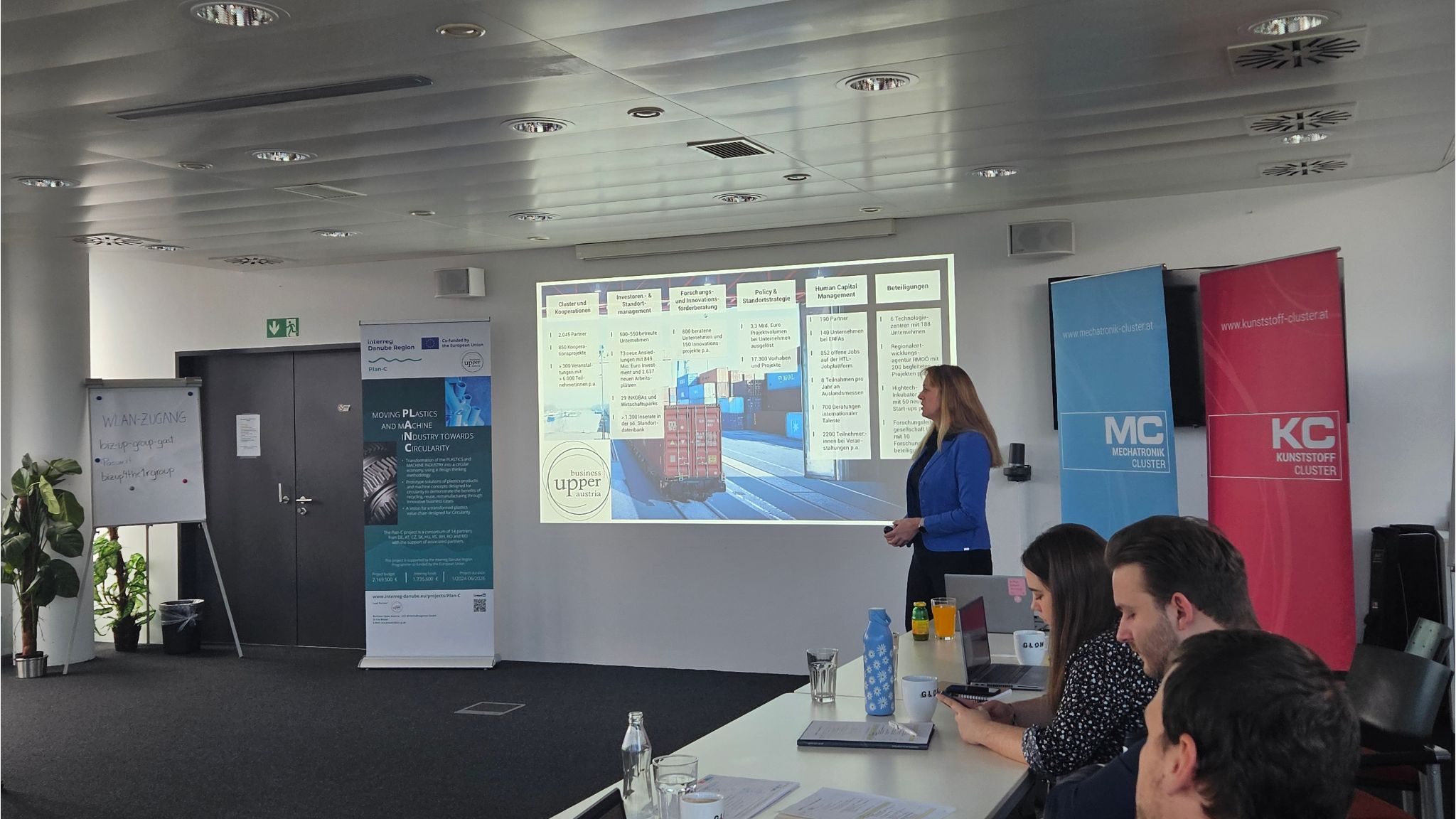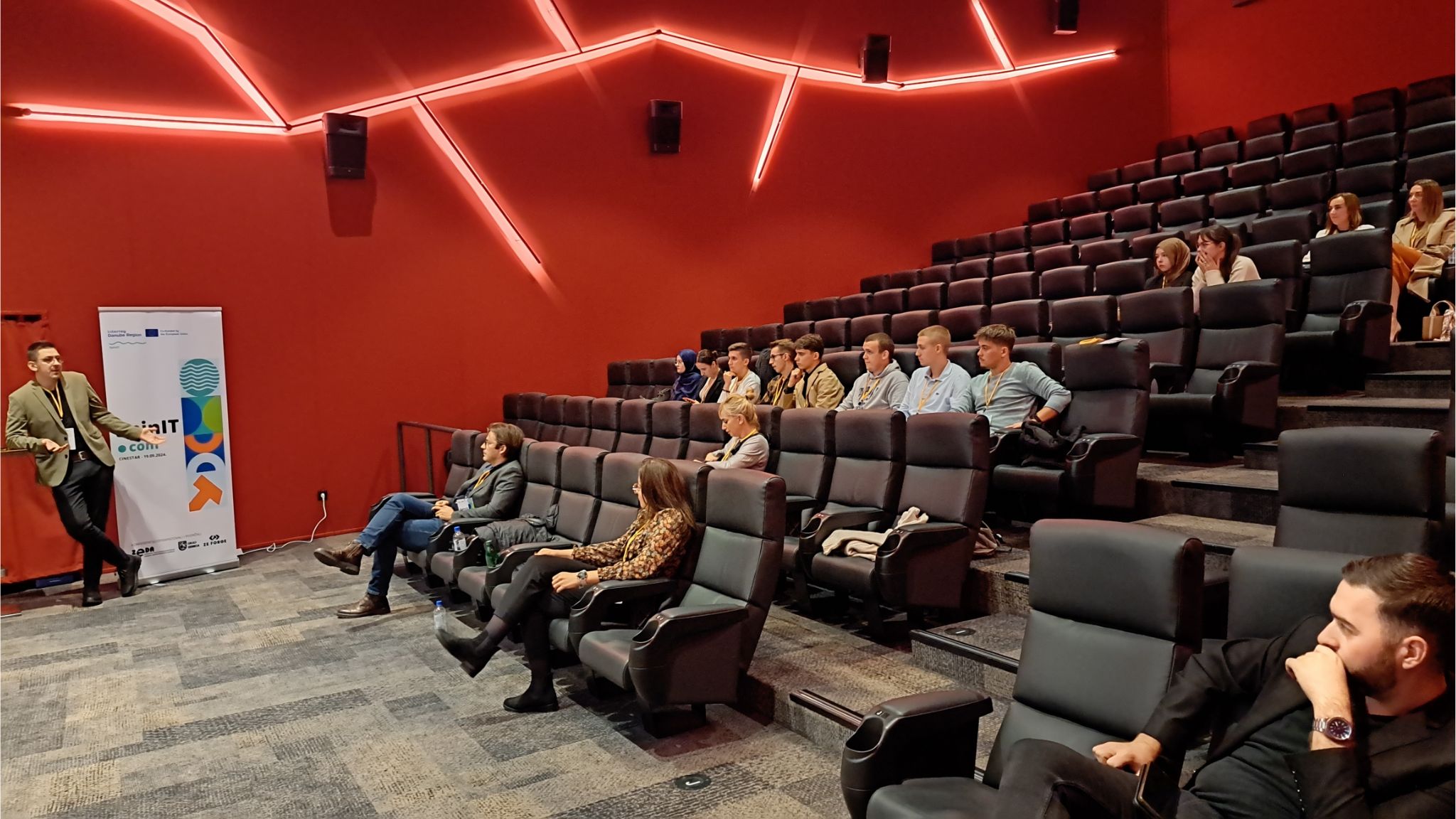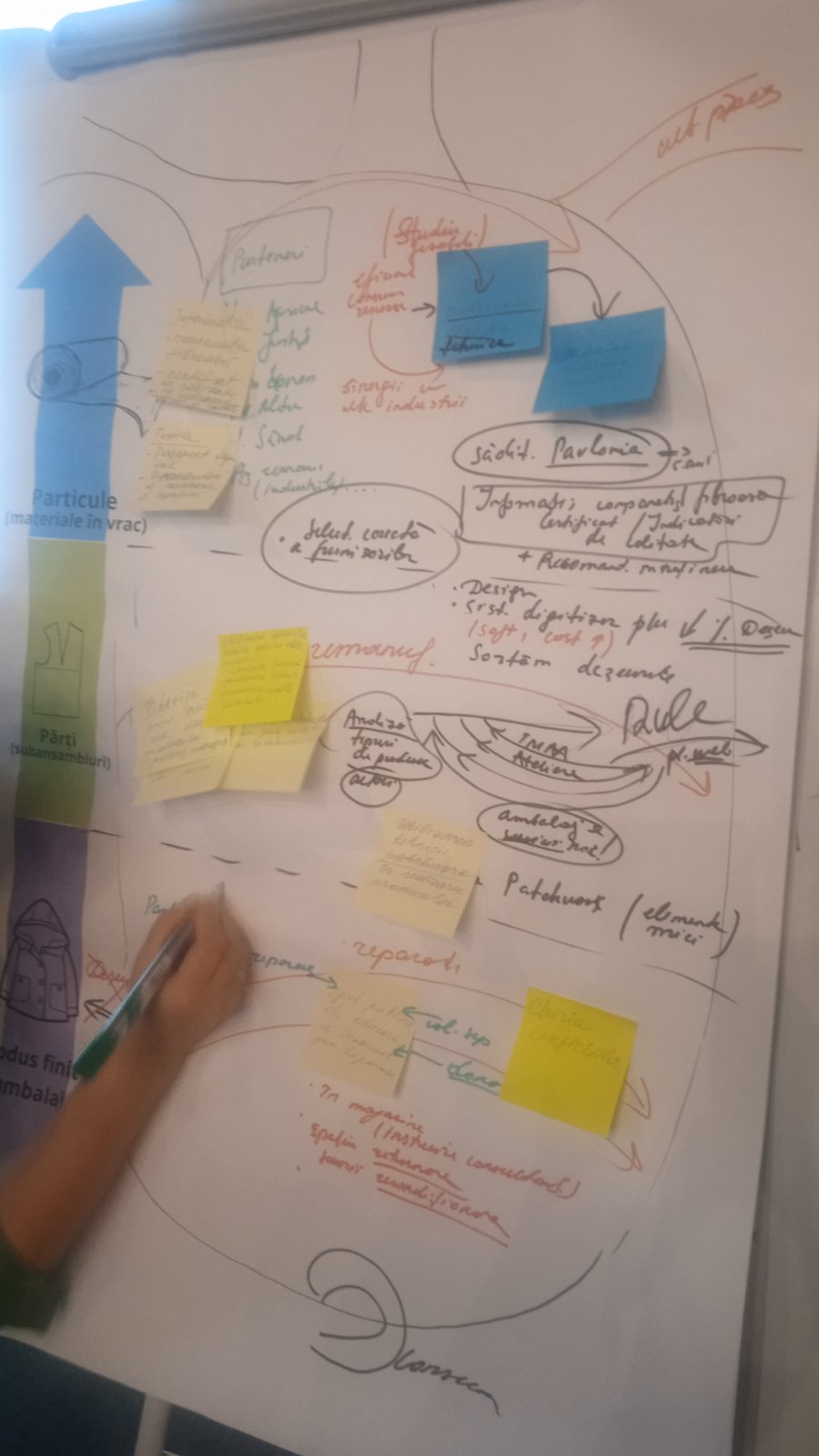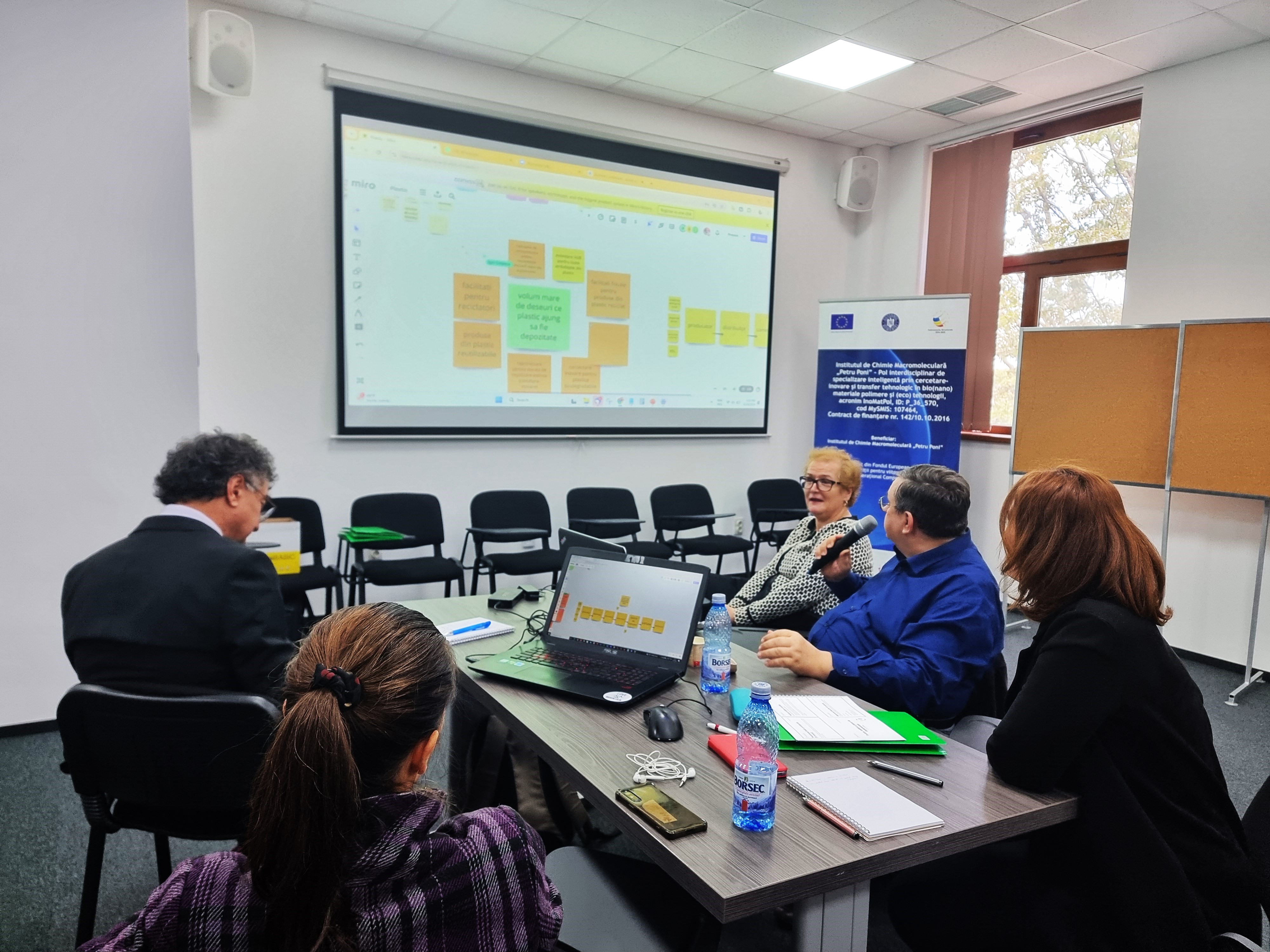
DTW in Plastic Industry – ICMPP
The workshop “Developing a Community of 'Design Thinkers' for Circularity in the Plastics Industry,” organized by the Petru Poni Institute of Macromolecular Chemistry in collaboration with CLUSTERO, took place on September 19, 2024. It brought together experts and stakeholders to explore innovative solutions for advancing circularity in Romania's plastics industry.
Using the Design Thinking methodology, participants tackled challenges in sustainable packaging, construction materials, healthcare plastics, waste management, and recycling. The event promoted collaboration among academia, industry, environmental agencies, and innovation clusters, fostering the development of circular solutions and digital innovations for the plastics sector.
The Miro platform was the primary tool for real-time collaboration and idea visualization during the workshop. It enabled participants to map challenges, generate ideas, and prototype solutions in an interactive and dynamic way.
Divided into two teams, participants used Miro to identify key challenges in the plastics industry, including issues with plastic collection and recycling, insufficient sorting infrastructure, and the prevalence of single-use products.
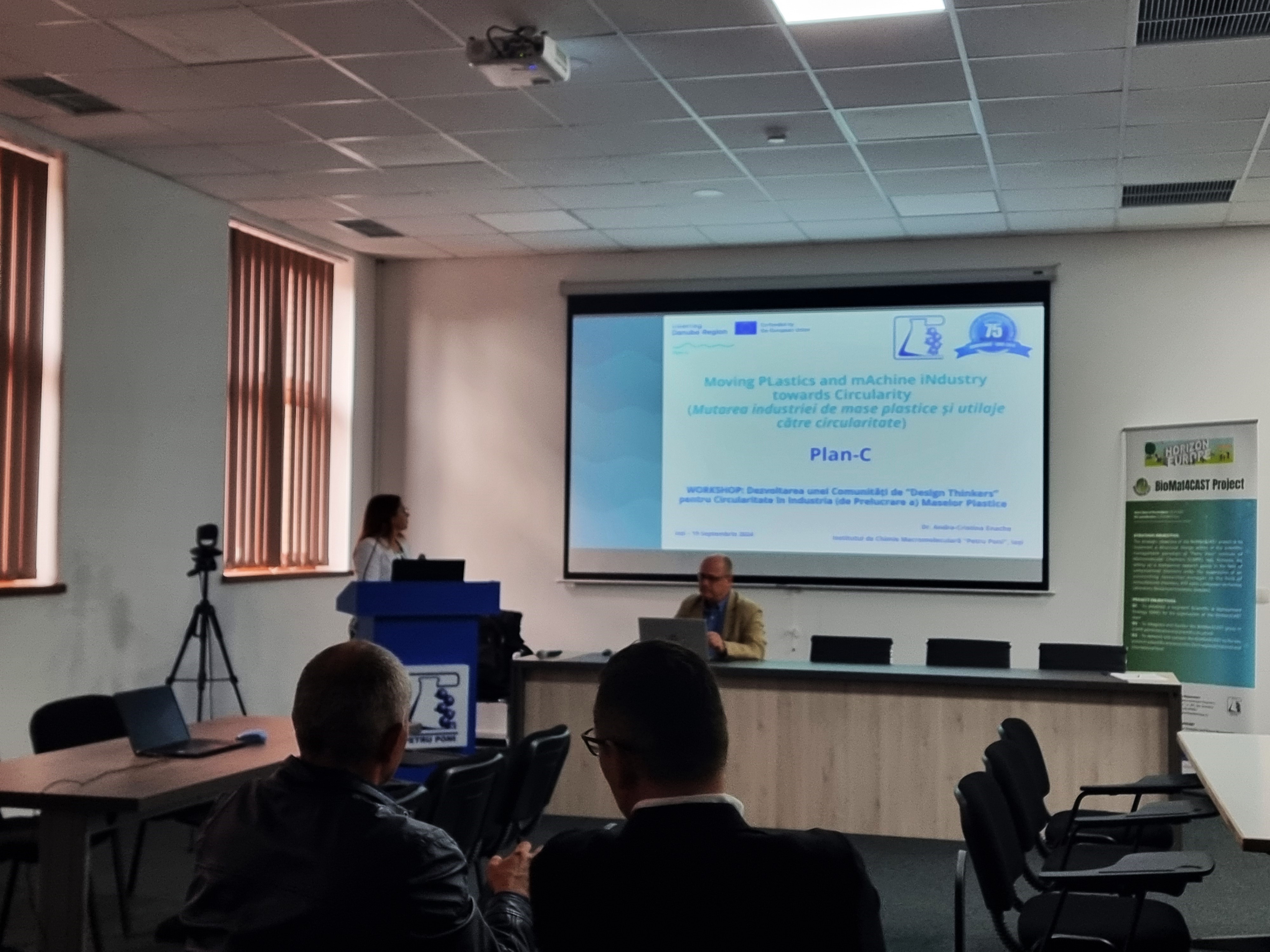
Team 1 proposed expanding the Deposit-Return System (DRS) to reduce plastic waste by including all types of plastic packaging, such as those for detergents, dairy products, and canned goods, beyond the current focus on beverage containers. The system would engage producers, retailers, and consumers in a streamlined recycling process:
• Producers: Create recyclable packaging and participate in the DRS through incentives and regulations.
• Retailers: Act as collection points, charging a refundable deposit fee (e.g., 1 RON) to encourage recycling.
• Consumers: Return used packaging to collection points to reclaim their deposit, promoting responsibility and participation.
• Collection Points: Centralize packaging for sorting and recycling.
• Sorting & Recycling: Separate materials and process them to maximize efficiency and quality.
This expanded system would boost recycling rates, reduce unrecycled waste, and incentivize manufacturers to adopt more recyclable materials.
Team 2 proposed Simplified Funding for Circular Economy Projects and Research-Industry Collaboration as the key solution to advance recycling technologies and product innovation in the plastics sector. The approach focuses on streamlining funding and fostering partnerships between research institutions and industry.
Key Features:
• Simplified Funding: Easier access to funding for SMEs and projects focused on sustainable practices, including investments, pilot projects, and new recycling technologies.
• Research-Industry Collaboration: Partnerships to accelerate innovation in recycling and product development, driving the transition to a circular economy.
• Eligibility: Open to SMEs and partnerships with clusters or agencies, promoting inclusivity and capacity-building.
• Competence Development: Includes training programs to ensure businesses can effectively adopt and operate new technologies.
• Reduced Bureaucracy: Simplifies application and reporting processes, making funding more accessible and increasing participation.
This proposal aims to drive innovation, support small businesses, and simplify funding mechanisms to scale circular economy solutions.
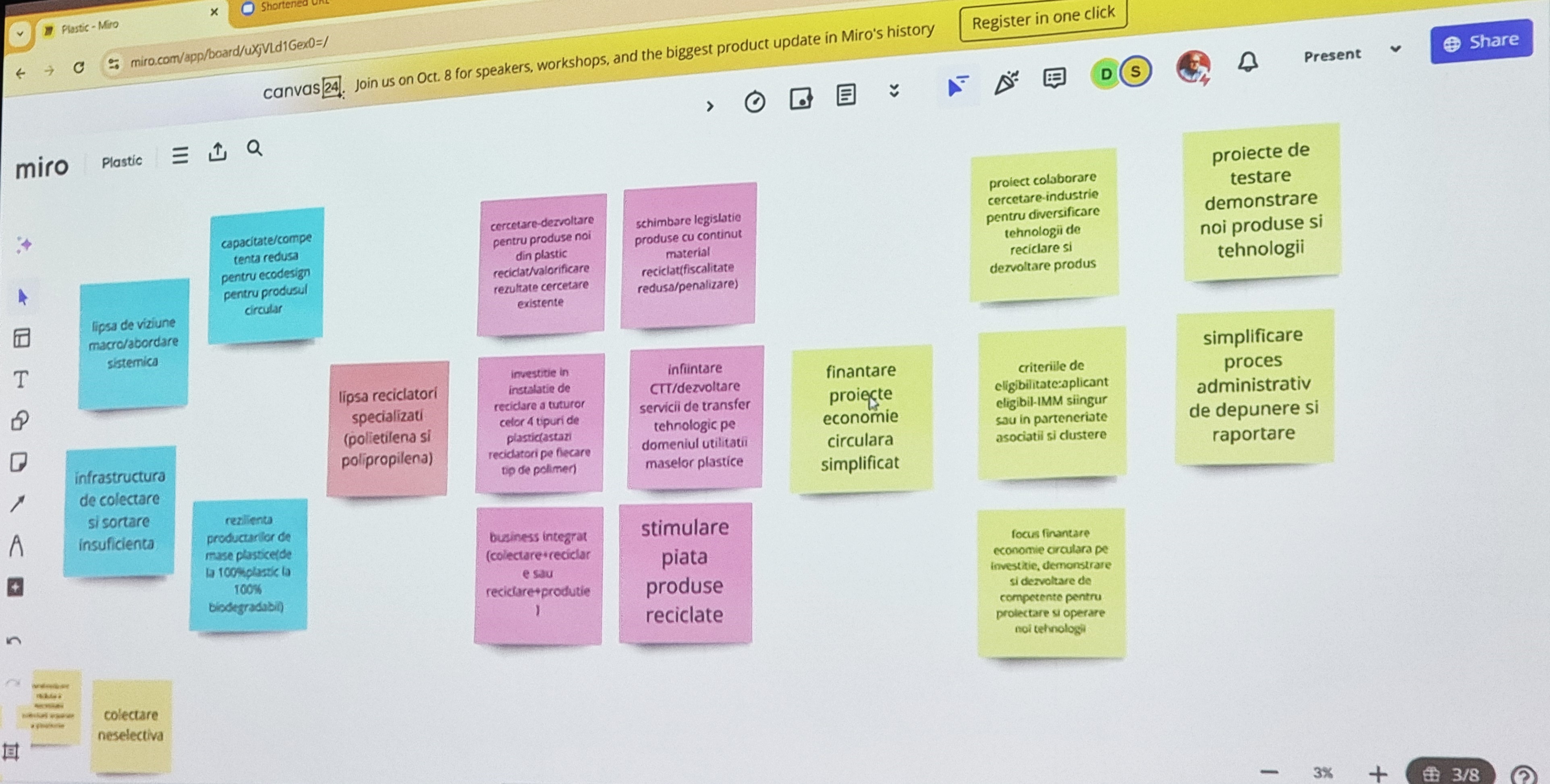
News & Events
Read the most recent updates and explore the upcoming events.

